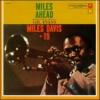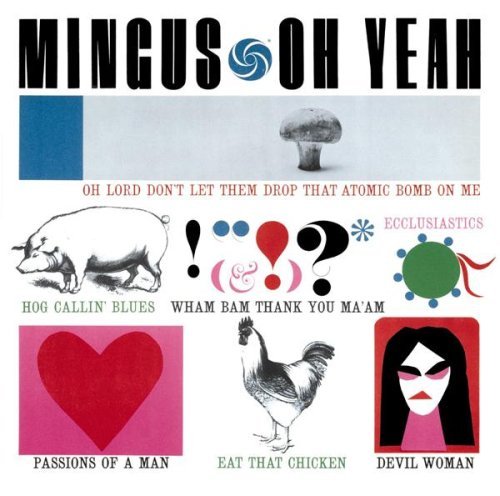-
Posts
2,055 -
Joined
-
Last visited
Content Type
Profiles
Forums
Events
Blogs
Everything posted by Milestones
-
Track #5 is from the 1960s. The leader is the pianist, though of course the flute is very prominent on this piece. He was/is also an alto sax player, but played flute a great deal. He was known for his sideman work.
-
Thanks for the pitch!
-
Nice work--that's 3 tracks fully identified. I am surprised no one has gotten #5 and, perhaps, #9.
-
We only have about a week left! I'm hoping more people will take a crack at my Blindfold Test.
-
I agree on #1. This is a co-led CD (sax and guitar), and both are serious veterans now (I think the saxophonist is past 60). I would say it would help to regard these players as of the generation and the approach of Joe Lovano, though not nearly as well-known as Joe. Yes, track #3 is John Abercrombie. The album is from the late 1990's. Yes, #4 is the late, great Randy Weston from early in his career. And, yes, #7 is Ron Carter. It is his composition. Think of the size of the band.
-
Hot Ptah, Good work here. On #2, you are correct that it is the Dylan song "Cold Irons Bound." I won't say more except that the group did at least one album (and maybe two) of Dylan's music exclusively. Number 4 is a major figure, especially in my eyes. I'll say it is among his early work, back in the 1950's. On #5 I understand the response. This is from a famous jazz label we all know. It's an important figure, though not necessarily as a musician. His bands (on record) typically feature big names. Number 8 is a Monk tribute, with "Monk" in the title--not this will narrow it down much. Number 13 indeed features Frisell and another guitarist who is just as renowned (if not more). In fact, it is the latter's date. Felser, You have completely identified #10.
-
Mostly obscure names there once you get past Weston and Zoot Sims...oh, the track listing cuts off. There are a few more significant figures.
-
OH, I agree...that is the best of his early records NOT appearing in the Mosaic set. "Run Joe," "J.K. Blues," etc.
-
Never heard of this collection of various artists--no doubt an early example of something that later became ubiquitous. I do like this version of "Loose Wig," which is decades earlier than the one I first heard--on Saga.
-
R.I.P. His performance in Boogie Nights was certainly quite good, even excellent. Of course, his screen time was pretty limited. Deliverance was a classic, though I think Jon Voight had the more outstanding performance. As a young actor, he did a dead-on and hilarious impersonation of Brando in a Twilight Zone episode.
-
Berkshire Blues (the album) seems like 2nd-tier Weston to me, though of course he has many great versions of that particular piece. Two versions of "Earth Birth" in the Mosaic collection, the first from Little Niles and the second this fine trio version.
-
Out of those three piano albums (one piano/bass) that you named, I have just one in my collection: African Nite. That's a pretty recent acquisition. It is pretty good, but I have generally not been all that fond of the solo piano records. It's kind of odd, since two of the concerts I saw by Weston were solo recitals--and I definitely enjoyed those. These more intimate settings work better for me when sprinkled in with tracks by a larger group. For instance, I love "The Last Day" (piano/bass) as the closing track on Self Portraits.
-
Someone said Weston probably never made a bad album, and that may be so. I would say that some were, at least relatively speaking, ordinary. But I would argue that, taken as a whole, Weston’s output is extraordinarily consistent and impressive. Weston: Mosaic Select—This 3-cd set is the go-to album to appreciate the best of Weston’s early work. Many of the very earliest records are too heavy on “standards.” Weston would soon depend almost entirely on his own compositions, with the occasional inclusion of Monk or Duke (and a couple of African composers). Little Niles (the album) is found here, and that is the start of Weston as a great artist. I believe that is also where Melba Liston came in; she needs to be mentioned in almost every Weston discussion. I also find High Life to be a great album. It’s a bit scaled-back from the African exploration of Uhura Arika, but to these ears it’s the better album. Monterey ’66—Not released until the 90s, and what a find. This is a band in full flight and perhaps the best place to hear Weston favorites Booker Ervin, Cecil Payne, and Ray Copeland…on fire. Portraits of Monk—I find this to be the best of the “portraits” albums. I love, love, love his long treatment of “Functional.” The Spirits of Our Ancestors—This was my first Weston album and it remains my favorite. Almost all the compositions had appeared earlier, but I think this was the capstone of his career. The mid- to large-scale band did everything Randy and Melba could expect of it. “African Sunrise” continues to be jaw-dropping. Volcano Blues—Weston was certainly a man who could perform the blues every which way, and he does that here—usually with a largish, band, but there are a lot of combinations and even some vocals. This one has possibly my favorite version of the much-recorded “Mystery of Love.” Saga—Mostly a mid-size group, but also solo, duo, trio etc. A rather diverse and thoroughly enjoyable record. Khepera—Another mid-size group, with a Chinese influence on some tracks. The opening track, “Creation” is certainly different and even avant gardish. It’s an ambitious and successful album. As you can see, I tend to favor the Verve years, but there is very good (and sometimes great) Weston from every period across six decades. And he finished strong. I really enjoy Zep Tepi (trio) and The Roots of the Blues (duo with Billy Harper). Please comment on your favorites.
-
You may want to change that spelling on Booker (Booger). I imagine that had Booker Ervin lived longer, he would have continued to appear on Weston's records. As it turned out, Billy Harper became the tenor muse--and that was a good thing too.
-
Well, it sounds so much like Newton and Hoggard that it's scary. I believe Newton had much influence of Mitchell.
-
Felser, Yes, track 12 is indeed Nicole Mitchell.
-
I also like Tyner's Fly with the Wind, which usually features 8-10 string instruments along with a fairly typical jazz combo.
-
And I started that one! But the other is more about small string sections. The ones on the newer thread are generally rather large string sections.
-
There is some good stuff out there. The first to come to mind is "Focus" by Stan Getz. I also like "Forever Love" by Mark Whitfield, though there are quite a few solo guitar pieces interspersed with the string orchestra numbers. Tom Harrell's "Paradise" is pretty good. Clifford Brown's much earlier strings album is quite different (perhaps too close to "easy listening") but worthwhile as well. Some of the selections by Haden's Quartet West with strings added are quite good ("The Left Hand of God" is a jewel), as are some of Joe Lovano's projects with strings. And of course this is just scratching the surface. At one point I would have said, "Totally avoid strings!" These days I'm pleasantly surprised that more than a handful have turned out really well.
-
I like your responses overall, though I definitely disagree about #13. Good guesses, but really nothing on the money (in terms of exact identification) other than Kenny Wheeler on #3 (he is not the leader).
-

Randy Weston compositions performed by other artists
Milestones replied to soulpope's topic in Discography
"Kucheza Blues"--Horace Parlan (with Booker Ervin) on Happy Frame of Mind. "Saucer Eyes"--Cecil Payne
_forumlogo.png.a607ef20a6e0c299ab2aa6443aa1f32e.png)

